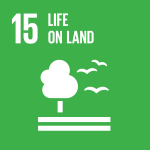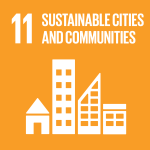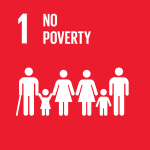
In Albania, harsher droughts and floods are threatening crop yields and rural livelihoods. Yet innovative yet affordable technologies are driving significant change, helping farmers adapt to the increasingly severe impacts of climate change. New solutions such as specialized pruning and branch-shredding machinery for olive groves are proving essential for sustainable agriculture.
In the municipalities of Vore and Shkoder, local farmers are demonstrating a strong commitment to adapting their practices, embracing transformative technologies to improve productivity and resilience in the face of increasing climate-related risks.
To support this shift, the Resource and Environmental Centre Albania (REC Albania), supported by the UNDP-Adaptation Fund Climate Innovation Accelerator (AFCIA), has facilitated access to new machinery that can ease the farmers’ labour load. The initiative has provided solar-powered irrigation systems and shredding equipment to 20 farmers—including eight women—and trained 122 high school students to support the region’s agricultural future.
“Agriculture is hard, especially in the current times, because the environment is not the same as it used to be, and it requires a lot of resources. We need irrigation systems and small machines, like the ones that transform branches into organic useful fertilizers.” – Sherif Hajdari, local farmer from Vore

Sherif Hajdari on his farm. Photo: REC Albania
Community-driven innovation
Many of the participating farmers belong to family units spanning multiple generations, with both older and younger members actively choosing to remain in the region rather than emigrate. Their continued presence has been instrumental to keep the agricultural sector active, especially as younger farmers bring digital literacy and a strong interest in technological advancements.
Historically, these farmers relied on seasonal wells for irrigation. However, rising summer temperatures have rendered this practice unreliable, with wells often running dry in the summer months of July and August.
In response, the community collaboratively designated a 20-square-metre plot to install solar panels and construct a solar-powered irrigation well. Located just 800 metres away from the farms, the new well is connected via an underground pipe network that distributes water equitably among the families. The arrangement is legally secured through a notarized agreement, ensuring long-term cooperation and shared benefits.
“Before this investment was made, we worked with petroleum pumps and, as a result, the costs were very high, losing time and resources in all aspects. We are very happy with the results of this investment.” – Nazmi Meti, farmer
The solar irrigation system has significantly reduced labour requirements, improved crop yields and enhanced water efficiency—factors that directly support the long-term sustainability and resilience of local agriculture.
Reducing emissions through agricultural waste management
Beside the solar irrigation system, the farmers have implemented an innovative branch-shredding technology for olive tree management.
Each year, the farmers cultivate and prune 750 olive trees across their land. Traditionally, the pruned branches were burnt, releasing carbon dioxide into the atmosphere. With the adoption of shredding technology, REC Albania estimates that 1.44 cubic metres of carbon emissions are avoided annually.
“The traditional way to irrigate the arable land was to flood it, and the way to manage the olive trees was to burn them. In the modern world this is quite problematic, because of water scarcity or because burning the pruning branches of the olive trees emits carbon to the atmosphere.” – Mihallaq Qirjo, REC Albania director
The community jointly purchased a high-capacity shredder, which processed branches from 150 olive trees within its first month of operation. The shredded material is repurposed as organic mulch, helping to retain soil moisture, reduce irrigation needs and act as a cost-effective, natural fertilizer.
Given the rising cost of commercial fertilizers and the burden this poses on farmers, this practice is especially valuable. It not only nourishes the land but also cuts down on evaporation from the soil and prevents further carbon emissions.

Mihallaq Qirjo meets with the community. Photo: REC Albania
Supporting adaptation and scaling
REC Albania has played a crucial role in facilitating the adoption of these technologies by conducting a thorough assessment of the community’s needs, comparing costs and identifying reliable local suppliers. Their participation in the Agricultural Mechanization Exhibition in Thessaloniki, Greece, allowed them to explore different solutions and establish connections with companies offering both the advanced irrigation system and olive-pruning shredder technologies.
Following a formal procurement process, REC Albania secured favourable terms for purchasing the required machinery. By acting collectively, the farmers were able to access high-quality equipment at a more affordable price than would have been possible individually.

Nazmi Meti and other community members look up to the solar panels that have been installed. Photo: REC Albania
“Understanding how farmers communicate and create groups will help us to develop that group connectivity and share that technology with other farmers. It will help us to upscale by extending those technologies to other farmers. We want to extend to new groups, link farmers to the financial sector and get matched to the financial sources. This will help in upscaling the solution to a broader perspective.” – Mihallaq Qirjo, REC Albania director
This collaborative model has established a framework that can be utilized in future initiatives, enabling better investment decisions and further enhancing the resilience of Albania’s agricultural sector. By combining local knowledge, collective action and targeted innovation, Albanian farmers—supported by REC Albania—are demonstrating how rural communities can lead the shift toward cleaner, smarter and more resilient agriculture. Their success is proof that climate solutions can start from the ground up.
*
Supported by financial contributions from the Adaptation Fund and the European Union, the UNDP-AFCIA programme has awarded 44 micro and small grants to locally led organizations across 33 countries worldwide, accelerating their innovative solutions to build resilience in the most vulnerable communities.
UNDP-AFCIA is one of two featured programmes under the Adaptation Innovation Marketplace (AIM), a multi-stakeholder strategic platform that promotes scaled-up adaptation at the local level.




